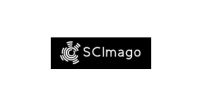Influence of the water microbiological quality on the milk quality
DOI:
https://doi.org/10.5380/avs.v14i1.12913Keywords:
coliformes fecais, coliformes totais, contagem bacteriana total, células somáticas, fecal coliforms, somatic cell, total bacterial count, total coliformsAbstract
The objective of this study was to verify the influence of the water microbiological quality (fecal and totalcoliforms and total counting) on the somatic cell count (SCC) and total bacterial count (TBC), which areindicative of milk quality. Water and milk quality from 162 herds in the Campos Gerais county, Parana State,were analyzed, between February and May, 2007. According to the water analysis, 62% of the farms werenot in agreement with the water potability standards established by Brazilian Health Ministry. Means andstandard deviations of analyzed parameters were 224 ± 387 total coliforms (MPN/100mL), 187 ± 354 fecalcoliforms (MPN/100mL), 0,05 ± 0,08 x 104 total counting (CFU/mL), 399,000 ± 170,000 somatic cell count(cells/mL) and 3,85 ± 8,6 x 104 total bacterial count (CFU/mL). Water quality parameters showed high andsignificant correlations among them (P<0.01). Milk quality variables (SCC and TBC) had showed a significant(P<0.01) but moderate correlation (r = 0.22). However, the correlations among water quality variables andmilk quality parameters were not significant (P>0.05). There was a significant effect (P<0.01) of the milkingsystem on TBC values, indicating that farms with milking parlor had produced milk with lower (P<0.01) totalbacterial count than herds with canalized milking system. Water microbiological quality did not affect the milkquality, indicating that high values of SCC and TBC were due hygienic failures in the milk obtaining processand equipments in the herds.
Downloads
Published
How to Cite
Issue
Section
License
Authors that wish to publish in AVS agree with the following conditions:
- To keep copyright of the article and allow the AVS to publish the first time. The article will be licensed by Creative Commons - Atribuição 4.0 Internacional allowing the sharing of their work.
- Authors may distribute their work by other channel of distribution (ex.: local or public repository).
- Authors have the permission to publish their work online, using different channels (similar to above), even before the final editorial process.













